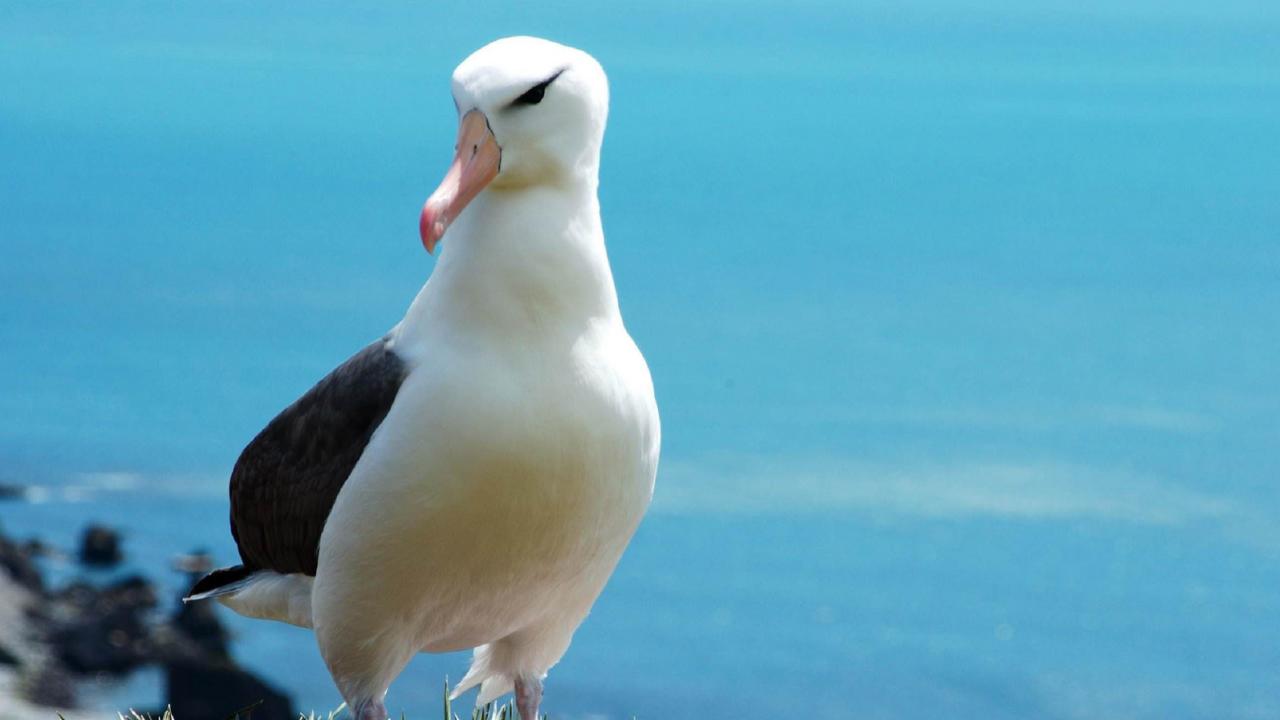Written by Matt Clifton, Senior Trusts and Foundations Manager of The Royal Society for the Protection of Birds (RSPB).
Since 2018, the Planeterra Ocean Health Fund has supported the work of the Royal Society for the Protection of Birds (RSPB) and BirdLife International’s Albatross Task Force to combat incidental capture of marine wildlife in fisheries around the world. To celebrate 20 years of the Albatross Task Force, we explore how Planeterra are helping scale up these measures to support work in the High Seas tuna fisheries. Oli Yates, Head of BirdLife International provides an update below.
Fisheries are an essential source of income and food security for millions worldwide, yet incidental capture in fishing gear poses a critical threat to marine biodiversity and represents the greatest at-sea threat to many seabird populations. This impact is particularly severe for albatrosses and large petrels, whose migratory life cycles expose them to fishing fleets across multiple Exclusive Economic Zones and in the shared waters of the High Seas – the immense area of ocean outside national jurisdictions. Populations are declining rapidly as these slow-breeding birds are tragically caught on hooks during tuna fishing operations and too often these birds do not survive – an impact known as ‘seabird bycatch’.
Formed in 2004, the RSPB’s Albatross Task Force (ATF) has bridged the gap between the scientific community, policymakers and the fishing industry to reduce albatross bycatch and improve the conservation status of these threatened animals.
The ATF teams have made so many remarkable and vital contributions to seabird conservation over the last 20 years. At-sea trials and implementation of bycatch mitigation measures in trawl and longline fisheries have led to astounding bycatch reductions – such as 98% fewer birds killed in the Namibian longline fishery, and a 99% reduction in albatross bycatch in the South African trawl fleet.

How the Planeterra Ocean Health Fund has helped
Support from the Planeterra Ocean Health Fund has helped deploy ATF staff to scale activities in the High Seas, with the potential to save thousands of seabirds per year – at least 36,000 are killed annually (this is likely to be an underestimate due to poor data) – including high-risk species like the Atlantic Yellow-nosed albatross, Grey-headed albatross, Wandering albatross and White-chinned petrels.
On the High Seas, fishing is regulated by Regional Fisheries Management Organisations (RFMOs). RFMOs require members to annually report bycatch including details of seabird and sea turtle bycatch, shark finning and implementation of conservation measures (eg. best-practice seabird bycatch mitigation measures) in areas where seabirds are present. Currently, many nations fishing in the High Seas, report extremely low levels of bycatch and no shark finning, which is unlikely given our knowledge of reports from fishery observers. Many fisheries have cited limited availability of trained observers and scientists to collect and analyse the data from commercial fishing activities as a key barrier to reporting.
With over 1,000 vessels operating throughout most of the global ocean, Taiwan is one of the world’s most important fishing nations. One of the most lucrative species targeted is tuna, which is predominantly caught by longline fishing methods.
The RSPB is supporting the Taiwan Wild Bird Federation, Taiwanese fisheries, communities and government to educate and improve understanding of mitigation measures to help protect threatened seabirds and promote sustainably sourced seafood. Scott Pursner is leading our efforts in Taiwan to support the process of engagement across the spectrum, from government to vessel owners and captains to major international tuna traders. External market access is an important incentive in Taiwan and efforts are underway to strengthen the ability of companies to demonstrate uptake of conservation measures. This is particularly true for those working towards Marine Stewardship Council certification for their vessels.
Details of our solution to tackle bycatch: engage, educate and advocate
Our ATF teams work directly with fishers to assess the risk posed by target fishing fleets by collecting data on vessels and supporting the implementation of effective mitigation measures that can reduce seabird bycatch to negligible levels. The measures range from simply fishing at night when fewer birds are around, to using so-called ‘bird-scaring lines’ which act as scarecrows behind fishing vessels, spooking birds out of harm’s way. In Taiwan, we are not able to join the vessels as they spend months at-sea. Instead, we are deploying an in-port outreach approach to ensure there are locally sourced options to provision Best Practice mitigation measures for the fleet. Where mitigation is available, like bird-scaring lines, we are providing advice on the design and materials. Where mitigation is not available, we are assisting in the sourcing of crew-safe measures such as “sliding leads” that prevent potential injury at-sea.
Our teams also work closely with government representatives, helping secure national regulations, requiring vessels to use such ‘bycatch mitigation measures’. In Taiwan, we are promoting and facilitating awareness of RFMO conservation measures that Taiwan has committed to incorporating into national regulations.
At a grassroots level, key to ATF success has been outreach activities including the training of fishing industry personnel (fishers, observers and compliance officers), bycatch education workshops at local schools and the production of reference materials (videos, leaflets) to supplement the wider programme. In Taiwan, we are currently adapting this approach to work within the local culture and structure, liaising with the local fishery observer agency, supporting capacity building activities so that lessons learnt in ATF teams are effectively transferred and incorporated into Taiwanese fleets.
The resultant relationships built with key stakeholders in the fishing industry and national authorities around the world puts the ATF in a unique position to help support Taiwanese fleets transition towards full implementation of bycatch mitigation measures on tuna vessels.
On behalf of the RSPB and Taiwan Wild Bird Foundation, we are grateful for the help from the Planeterra Ocean Health Fund to support Taiwanese fisheries, communities and government to educate and improve understanding of mitigation measures to help protect threatened seabirds and promote sustainably sourced seafood.


Post a comment